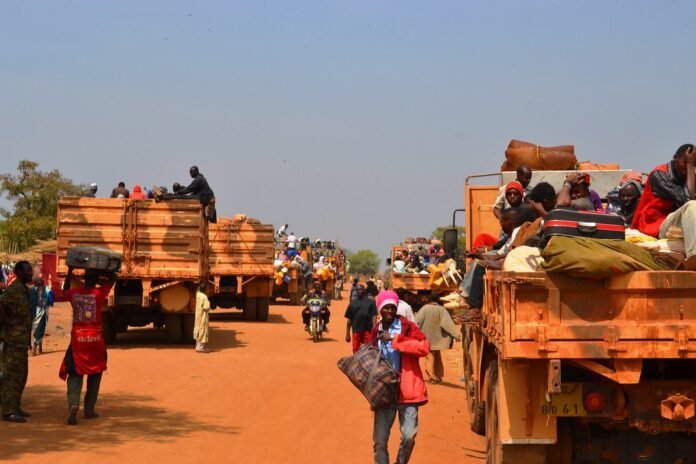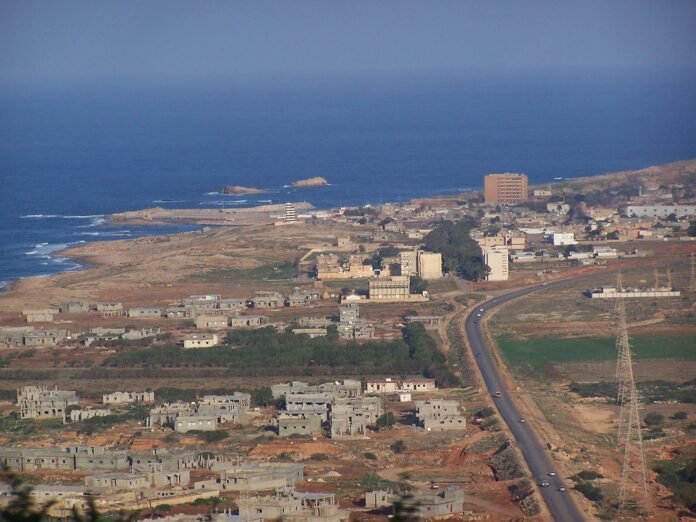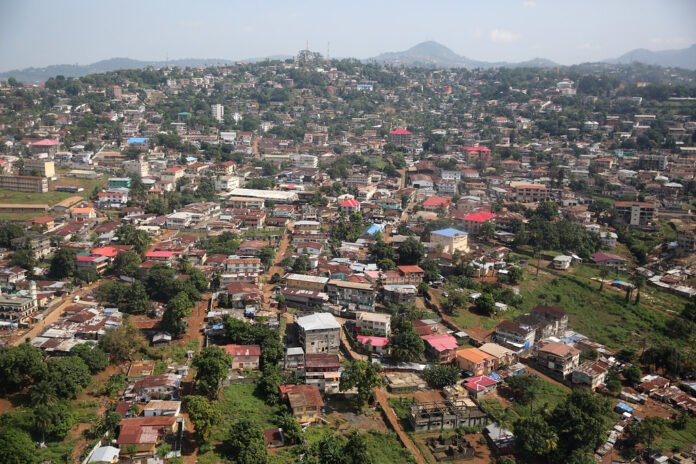Health insurance in Chad is split between a struggling public system and an emerging, expat-focused private sector. Each has its strengths and weaknesses, with their differences reflecting the broader healthcare infrastructure in the country.
Public Health Insurance in Chad is primarily offered through the National Social Security Fund (CNPS) and government hospitals. CNPS covers private sector employees through mandatory payroll contributions, providing limited health benefits alongside pensions and workplace injury coverage. Coverage is tied to formal employment, meaning a large portion of the population in the informal sector remains uninsured.
Government hospitals like the Hôpital Général de Référence Nationale in N’Djamena deliver the core of public healthcare services. These are funded through government budgets and international donors. However, public insurance offers basic coverage at best, often failing to meet the needs for specialized or emergency care due to underfunding, staff shortages, and limited infrastructure—particularly in rural areas. Additionally, donor-funded programs from organizations such as the WHO play a vital role in subsidizing care for vulnerable populations, offering support for immunizations, maternal health, and disease control.
On the other hand, private health insurance in Chad is primarily provided by international insurers such as Cigna, Allianz, Bupa Global, William Russell, and Now Health International. These plans are geared toward expats and the wealthier local population, offering comprehensive packages that cover inpatient and outpatient services, specialist consultations, maternity, mental health care, and emergency evacuation—services that public insurance cannot reliably guarantee.
The major differences between the two systems are in coverage quality, accessibility, and cost. Public insurance is limited in scope and generally only covers basic healthcare needs, with quality varying widely depending on the region. Conversely, private insurance offers access to high-quality private hospitals, better facilities, shorter wait times, and broader treatment options, though it comes at a much higher cost. Private insurers also provide 24/7 multilingual support and international networks, which are especially important for expats and those seeking care abroad.
Despite their differences, some similarities exist. Both systems recognize the need for financial protection in health emergencies and contribute to the overall healthcare landscape in Chad. Moreover, employer-sponsored health benefits serve as a bridge between public and private models. Certain employers in the formal sector provide medical coverage through third-party administrators like ASCOMA, giving employees and their families access to services such as dental, optical, and hospitalization—though these remain limited to a small, privileged segment of the population.
Top Public Health Insurance Options in Chad: Cost, Coverage, and Consumer Insights
Chad, a landlocked country in Central Africa, faces several challenges in its healthcare system due to economic limitations, political instability, and a shortage of medical infrastructure. As a result, public health insurance options are limited. The primary form of public health insurance available in Chad is the National Health Insurance Scheme (NHIS), which is still in developmental stages but represents the government’s core initiative to improve healthcare access. Unlike countries with well-established multiple public health insurance programs, Chad primarily relies on this single government-backed scheme, with a few supplementary community-based health initiatives that support low-income populations.
- National Health Insurance Scheme (NHIS)
Cost: The NHIS is primarily government-subsidized. For public sector employees, contributions are deducted from salaries—approximately 5% of gross monthly income. For informal sector workers, contributions are voluntary and modest, but compliance is low due to lack of awareness and enforcement.
Available Services/Coverage Features: The NHIS focuses on essential healthcare services, including:
Primary and maternal healthcare
Vaccinations and preventative care
Emergency treatment
Basic diagnostics and generic medications
However, coverage for specialized treatments and chronic illnesses remains limited due to resource constraints.
Open for All or Limited: The scheme primarily targets public sector employees and their dependents. It is intended to be universal in the long term, but currently, it is limited in scope and accessibility for those in the informal sector or rural communities.
Core Financial Features: The NHIS is funded through payroll deductions, government contributions, and some international aid. It offers partial subsidies on healthcare costs, reducing out-of-pocket expenses for basic care. However, many users still pay significant costs for medications, diagnostics, and hospital stays due to supply gaps and infrastructure challenges.
Consumer Satisfaction Score: Estimated at 2.5 out of 5, based on limited regional studies and anecdotal reports. Patients appreciate the reduced cost of basic care but express dissatisfaction with long wait times, lack of available medicines, and inconsistent service quality in public facilities.
- Community-Based Health Insurance (CBHI) Programs
While not formal public health insurance, community-based programs supported by NGOs and local health authorities fill critical gaps.
Cost: Monthly or annual premiums are very low, typically between $1–$5 per family. Contributions are pooled at the community level.
Available Services/Coverage Features: CBHI schemes cover basic outpatient care, maternal health, and some emergency services. They usually partner with nearby clinics for service delivery.
Open for All or Limited: Limited to participating communities, often in rural areas. Enrollment is voluntary.
Core Financial Features: Operates on mutual aid principles. Financial risk is shared among members, and external funding often supports sustainability.
Consumer Satisfaction Score: Estimated at 3.2 out of 5. Users value the affordability and local access but note inconsistent service availability and lack of advanced treatment coverage.
Private Health Insurance in Chad: Providers, Coverage, and Consumer Feedback
Chad’s private health insurance sector is relatively small but gradually expanding in urban areas such as N’Djamena, catering primarily to expatriates, government officials, and wealthier locals. Due to economic challenges and limited infrastructure, only a few formal private insurers operate in the country. Most private health insurance offerings come through international companies with regional offices or partnerships. The following are the main private health insurance providers accessible in Chad.
- SONAM (Société Nationale d’Assurances du Mali – Chad Branch)(Official Website: https://www.sonamassurances.sn/)
Cost: Premiums range from $20 to $150 per month, depending on the coverage tier and age of the insured.
Available Services/Coverage Features:
Inpatient and outpatient care
Surgical procedures
Diagnostic services
Limited dental and maternity care
Emergency medical evacuation
Open for All or Limited: Primarily serves corporate clients, government employees, and private-sector professionals. Individual enrollment is available but less common.
Core Financial Features: Offers co-payment structures with deductibles ranging from 10–20%. Some plans require up-front payments with later reimbursement.
Consumer Satisfaction Score: 3.8 out of 5. Clients appreciate the prompt reimbursement system and access to private clinics, though rural coverage remains limited.
- SAAR Assurances Chad(Official Website: https://www.saar-assurances.com/)
Cost: Monthly premiums range between $25 and $180, depending on the age, pre-existing conditions, and selected plan.
Available Services/Coverage Features:
General consultation
Hospitalization
Emergency services
Routine health checkups
Optional international medical evacuation coverage
Open for All or Limited: Available to both individuals and corporations, though mostly marketed to employers and institutions.
Core Financial Features: Offers tiered plans with flexible co-pay options. Premium discounts are available for group policies.
Consumer Satisfaction Score: 3.6 out of 5. Users commend the company’s customer service and reliability in urban centers but cite occasional administrative delays.
- NSIA Assurances Chad(Official Website: https://groupensia.com/)
Cost: Premiums typically range from $30 to $200 per month, depending on age, family size, and risk assessment.
Available Services/Coverage Features:
Outpatient and inpatient care
Laboratory testing
Chronic illness management
Maternity benefits (on premium plans)
Telemedicine consultations
Open for All or Limited: Available to individuals, families, and employers. More comprehensive plans often require medical history checks.
Core Financial Features: Includes partial reimbursements and direct payments for approved hospitals. Has a mobile app for claims and health management.
Consumer Satisfaction Score: 4.0 out of 5. Users report strong digital service delivery and fast claim processing, particularly for outpatient services.
- UAC Chad (Union des Assurances du Cameroun – Chad Division)
Cost: Premiums start at $18 per month for individuals and go up to $160 per month for family plans.
Available Services/Coverage Features:
Basic consultations and medication
Hospital stays
Emergency care
Preventive care and wellness programs
Open for All or Limited: Open to the general public but often included as part of employment packages.
Core Financial Features: Offers co-insurance and deductibles based on plan type. Provides partial international coverage in partnership with foreign providers.
Consumer Satisfaction Score: 3.4 out of 5. Positively rated for basic coverage and accessibility, but users mention gaps in specialized care and rural service delivery.
READ MORE: Private and public health insurance of Guinea-Bissau (Make informed choices)


